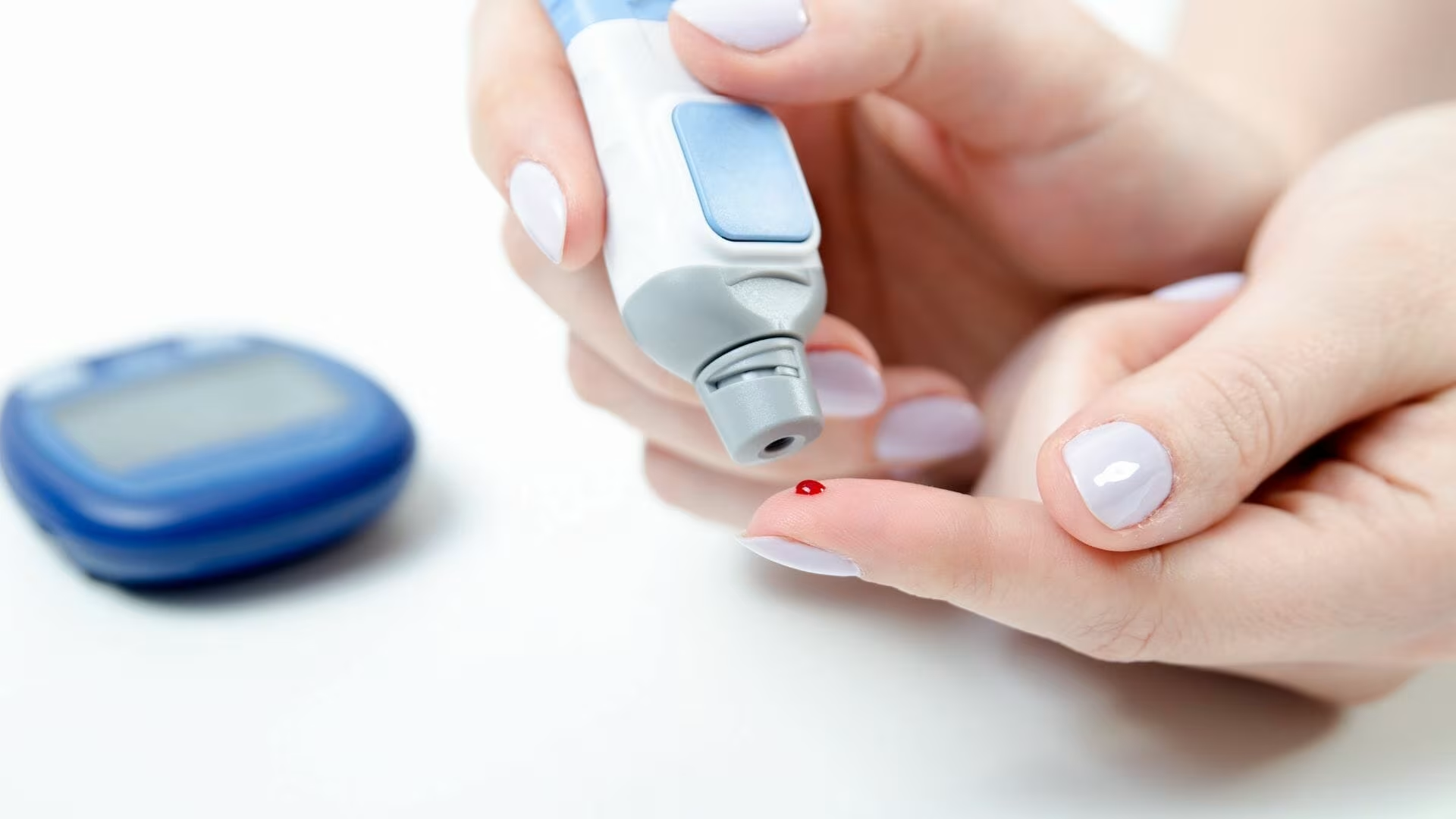Insulin resistance is a precursor to Type 2 diabetes, high blood pressure and high levels of triglycerides. It also increases your risk of fatty liver disease and certain genetic conditions like polycystic ovarian syndrome and insulin resistance syndrome.
Experts don’t know what causes it, but obesity is a big factor. So is not getting enough physical activity. Eating a healthy diet and losing weight, if needed, can improve your symptoms and help you avoid prediabetes or Type 2 diabetes.
Diet
When you eat food, it is broken down into sugars that circulate in your blood. The increase in blood sugar triggers an internal organ called the pancreas to release insulin to help your body cells absorb the blood glucose for energy. When the pancreas is overworked, it can become resistant to insulin, resulting in elevated blood sugars (hyperglycemia). Over time, hyperglycemia can lead to prediabetes or Type 2 diabetes.
Scientists are still learning what causes insulin resistance. However, they do know that excess body fat, particularly in the abdomen and around the organs (visceral fat), is a major factor. Being sedentary is another risk factor, as is being older.
A healthy diet that cuts back on sugary drinks, processed foods and unhealthy fats can improve insulin resistance. The American Diabetes Association recommends a Mediterranean-style eating plan, which emphasizes plant-based foods, fish and healthier fats. The plan also discourages consuming large amounts of foods that raise blood sugar and insulin levels quickly, known as high-glycemic index foods.
Regular physical activity can also improve insulin resistance. Exercise can help because it strengthens muscle, which helps your body better absorb and use blood glucose for energy. It can also relieve stress, which is a common cause of insulin resistance.
Some medications can make you more susceptible to insulin resistance, including steroids and some blood pressure or HIV drugs. Cushing’s syndrome is a rare condition that can also contribute to insulin resistance because it increases the production of cortisol, which counteracts the effects of insulin.
Eating well to control your blood sugar is vital for reversing insulin resistance and avoiding prediabetes and Type 2 diabetes. But there’s no one-size-fits-all approach to dieting for insulin resistance, as everyone responds differently to different foods and beverages. That’s why the ZOE program uses an at-home test to analyze your blood sugar and blood fat responses to specific foods, as well as your gut health, so you can find the best diet for you. Then, you can work with your provider to achieve your health goals.

Exercise
Insulin resistance is caused by an inability of cells, including muscle and adipose tissue, to respond to insulin. This means that sugar can’t enter these cells for use as energy and remains in the bloodstream, causing circulating glucose levels to rise. Exercise has been shown to improve insulin sensitivity and glucose uptake in these tissues, making it an important part of any treatment plan.
It is recommended that patients with insulin resistance work out one to three hours after a meal or snack, and that they check their blood sugar before exercising and again 30 minutes later. This helps avoid hypoglycemia, or low blood sugar. It’s also important to exercise for at least two to four hours a week, and to try to do this on the same days each week.
Researchers at Tubingen University Hospital and Helmholtz Munich, Germany, found that 8 weeks of exercise helped restore healthy insulin activity in the brains of obese adults who were insulin resistant. They were also able to lower their HbA1c values, a measure of blood sugar control in diabetes.
Primary care providers are in a position to prescribe an effective exercise regimen for their patients. They can set realistic goals for a patient that are achievable and maintainable over the long-term, protecting them from the serious health consequences of insulin resistance. This will help them reduce their risk for developing T2D and the many other chronic diseases associated with it.
Weight loss
Insulin is a hormone that shuttles glucose, a type of sugar, into cells to use for energy. But when you’re overweight, insulin resistance puts a strain on your body and increases your risk of diabetes and heart disease. The good news is that you can do a lot to treat and prevent insulin resistance, including eating healthy, getting regular exercise and losing weight.
Even modest weight loss can boost your body’s insulin sensitivity and improve your blood sugar levels. You can try any diet – as long as it cuts back on sugar, processed carbohydrates and fatty foods, and includes lean protein. Try to avoid eating late at night, because studies show that this can increase your insulin resistance.
Physical inactivity also makes your body less sensitive to insulin, which can lead to prediabetes and Type 2 diabetes. Try to get at least 30 minutes of moderate exercise (like brisk walking) most days of the week.
Other health problems, such as high cholesterol, hypertension and polycystic ovarian syndrome, can also contribute to insulin resistance. Certain medications, like steroids and HIV treatments, can also raise your risk. And a few rare genetic disorders, such as Werner syndrome and myotonic dystrophy, can cause the condition too.
Insulin resistance usually doesn’t have any symptoms, so you may not know you have it unless your doctor looks for it during a routine health exam or blood work. But your doctor can screen for it if you have a waistline of more than 40 inches in men or 35 inches in women, a fasting blood sugar above 100 milligrams per deciliter or a hemoglobin A1C level of 5.7% to 6.3%.
Lifestyle interventions are the first line of treatment for insulin resistance, and your doctor can offer non-judgmental counseling about healthy eating and exercise. You can do a variety of exercises to stay active, from dancing to cycling, as long as you move regularly and build muscle to strengthen your metabolism. And you can follow a diet that includes whole grains, plenty of vegetables and fruits, and limited sugar and processed fats.
Medication
Insulin resistance occurs when cells in your muscles, fat and liver don’t respond well to insulin, which helps regulate blood glucose levels. Normally, insulin allows the body to take up glucose from the blood for energy or storage. Over time, if your cells become resistant to insulin, too much glucose stays in the bloodstream. Your pancreas has to make more and more insulin to overcome this resistance, eventually wearing out the cells that produce it. In the long run, this can lead to type 2 diabetes.
Anyone can develop insulin resistance, though it’s more common in certain groups of people. These include people with a family history of type 2 diabetes, those who are overweight, and those of certain racial or ethnic backgrounds (such as African American, Hispanic or Latino, and Indigenous people from Alaska, the continental U.S., or the Pacific Islands). Being older than 45 also increases your risk. Certain medical conditions can also lead to insulin resistance, including obstructive sleep apnea, fatty liver disease, polycystic ovary syndrome (PCOS), and Cushing’s syndrome.
A healthy diet that focuses on lean proteins, whole grains, and fruits and vegetables can help reduce insulin resistance. It’s important to limit sugary foods, refined carbohydrates, and foods high in glycemic index (GI). Your doctor may recommend certain supplements, such as vitamin D or magnesium, for insulin resistance.
Exercise can also improve insulin sensitivity, and it’s recommended that you do moderate-intensity cardio exercises like walking or swimming for at least 30 minutes five times a week. Talk to your doctor about what types of exercise are right for you.
There aren’t any medications specifically approved to treat insulin resistance, but some drugs used to treat type 2 diabetes lower blood sugar and help improve insulin sensitivity. These are called insulin sensitizers, and they can be prescribed along with lifestyle changes. They can include ACE inhibitors or ARB agents for high blood pressure, and cholesterol or triglyceride-lowering medicines like Wellbutrin (bupropion). Talk to your doctor about whether these medications are appropriate for you.

